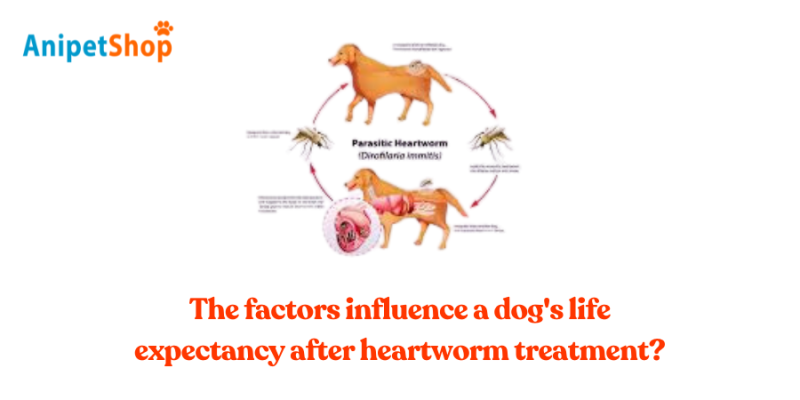Dog Life Expectancy After Heartworm Treatment
Wondering about your dog’s life expectancy after heartworm treatment? This serious condition can affect their heart and lungs, but effective treatment can help. Regular vet check-ups are crucial for monitoring recovery.
What factors should you consider, and what proactive steps can you take? Let’s delve into the key elements that can enhance your dog’s life expectancy after treatment.
First, the severity of the heartworm infection plays a big role. If caught early, dogs have a much better chance of full recovery. Regular blood tests and X-rays help in assessing the damage and tracking improvements.
Second, follow-up care is essential. Ensure your dog receives all prescribed medications and attends all vet appointments. Consistent care can prevent complications.
Third, a balanced diet and regular exercise are vital. Proper nutrition aids in recovery, while exercise helps strengthen the heart and lungs. However, consult your vet before starting any new exercise regime.
Lastly, keep an eye out for symptoms like coughing, fatigue, or difficulty breathing. Early detection of problems can make a big difference.
By focusing on these factors, you can help improve your dog’s life expectancy after heartworm treatment.

What is the life expectancy of a dog after heartworm treatment?
After successful heartworm treatment, many dogs can live normal, healthy lives. However, the extent of any damage from heartworms and potential long-term effects can vary. While treatment can eliminate heartworms, damage to the heart, lungs, and arteries might’ve lasting consequences.
Many dogs that receive timely and effective treatment can return to their usual activities and enjoy a good quality of life. It’s vital to monitor for signs of complications or residual issues. Regular check-ups with your veterinarian can help manage long-term effects and ensure your dog stays healthy.
Outcomes can differ based on several factors, such as the severity of the infection before treatment and the dog’s overall health. Each dog’s response to treatment is unique. Some may need additional care or lifestyle adjustments to maintain health post-treatment. By staying informed and vigilant, you can help your dog recover fully and thrive after heartworm treatment.

What factors influence a dog’s life expectancy after heartworm treatment?
Several crucial factors influence a dog’s life expectancy after heartworm treatment. The severity of the infestation before treatment is paramount. If your dog had a heavy infestation, the damage to their heart and lungs might be extensive, potentially shortening their lifespan even after successful treatment.
The dog’s age at treatment time also matters. Older dogs may face tougher recoveries and might’ve pre-existing health conditions that complicate recovery. The overall health and fitness of your dog before treatment also play significant roles. A healthy dog with a robust immune system is more likely to recover fully and live longer than one already in poor health.
The effectiveness and timeliness of the treatment are vital. Delays in treatment can cause more damage, and less effective treatments mightn’t fully eradicate the heartworms, leading to ongoing health issues. Lastly, post-treatment care, including regular veterinary check-ups and a healthy lifestyle, can greatly influence recovery and longevity.
Understanding these factors helps you better navigate your dog’s recovery process.

What post-heartworm treatment steps ensure your dog’s longevity?
Ensuring your dog’s longevity after heartworm treatment involves several crucial steps that require dedicated care. First, always follow your veterinarian’s advice. They know the best course for your dog’s specific needs.
Regular check-ups and monitoring are key to catching any lingering issues early. Ensure your dog receives heartworm prevention medication year-round to avoid future infections.
Limit your dog’s exercise initially. Gradually increase their activity level as they recover, following your vet’s guidance. A sudden increase in activity can strain their heart and lungs, so proceed slowly.
Focus on your dog’s diet and weight management. A nutritious diet aids recovery and helps maintain optimal health.
Be alert for signs of complications, such as coughing, fatigue, or breathing difficulties. These symptoms could signal heart or lung issues needing prompt veterinary attention.
Lastly, maintain open communication with your vet. If you have concerns or notice unusual behavior, contact them right away. Your proactive involvement can significantly impact your dog’s recovery and long-term health.

Conclusion
After heartworm treatment, your dog can still live a healthy and fulfilling life. Life expectancy depends on factors like the severity of the initial infection, the timing of treatment, and careful post-treatment care.
To ensure your dog’s longevity, maintain regular vet check-ups, monitor for complications, and follow all care guidelines.
With your attention and commitment, your furry friend has the best chance at a happy, long life.
Lily Watson is an author specializing in veterinary care in Australia. With a profound passion for animal welfare and a solid foundation in veterinary science, Lily has dedicated herself to disseminating valuable knowledge and information for both pet owners and professionals in this field.

